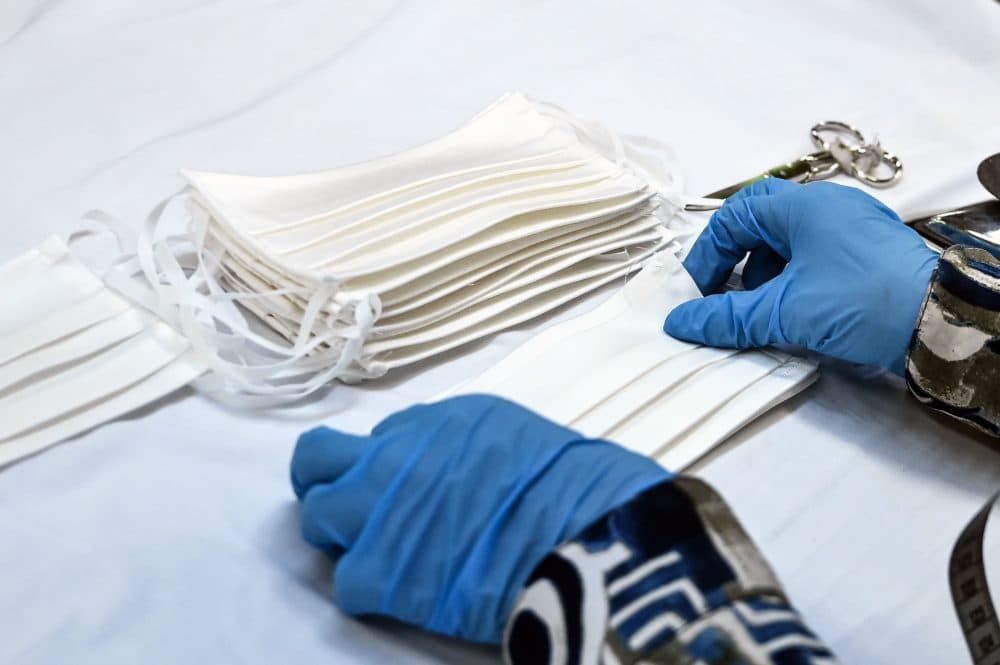Advertisement
Face Masks In Courtrooms Could Lessen False Assumptions About Credibility, Researcher Finds
Resume
Many reopened courts now require people to wear face masks to prevent the spread of the coronavirus.
Wearing face masks in courtrooms can do more than protect public health, says Julia Simon-Kerr, professor of law at the University of Connecticut School of Law. Preventing jurors from seeing a witness’ full face could inhibit false assumptions during trials, she argues in a forthcoming essay in Arguendo, part of the George Washington Law Review.
Though it sounds counterintuitive, studies show trying to read facial cues inhibits a person's ability to accurately judge if someone is telling the truth.
“We have a strong cultural assumption that we can learn something about a person's truthfulness if we look at their face,” she says. “But the reality is that there is no evidence to support that assumption.”
Looking at someone’s face often leads to assumptions about their gender, race and level of social privilege, she says. These factors can influence our thinking and whether we’re inclined to believe someone.
“It's not about their words and whether their words are credible and makes sense to us,” she says, “but rather what kind of person we think they are.”
Face masks don’t conceal key signifiers about someone’s race or gender, and therefore can’t eliminate bias entirely. But facial coverings do deter people from the assumption that seeing a witness’ whole face is necessary to judge their credibility, she says.
The confrontation clause in the Constitution gives criminal defendants the right to confront witnesses testifying against them. Simon-Kerr says this doctrine could pose a problem for face mask requirements, but that any issues could be legally overcome because of the government’s interest in preventing the spread of the virus.
The confrontation clause ensures people aren’t convicted of crimes based on a statement an accuser won’t say in the defendant’s presence, she says. Courts can still accomplish this goal with face masks or a more serious measure such as putting the witness behind a screen.
While many places throughout the country mandate face coverings in public, some Black and Brown people say masks put them in danger of racial profiling.
Columbus, Ohio, resident Aaron Thomas wrote an opinion piece in the Boston Globe about the additional risks faced by men of color. In April, Thomas told Here & Now he worries wearing a face mask will cast him in a negative, stereotypical light.
Simon-Kerr says it’s possible that masks could have the opposite effect than what she hopes if courts aren’t careful. For example, courts should issue the same type of mask to everyone in the room.
The risk of stereotyping could also depend on the court’s location. Parts of the country where people are complying with long-standing mask orders have less risk of reinforcing stereotypes, she says.
“On the other hand, if we're in a place where people have not been wearing masks, there's little compliance even if there is a mask mandate, then I do think the risk of stereotyping is something we have to take very seriously,” she says.
Jill Ryan produced and edited this interview for broadcast with Tinku Ray. Allison Hagan adapted it for the web.
This segment aired on July 1, 2020.

